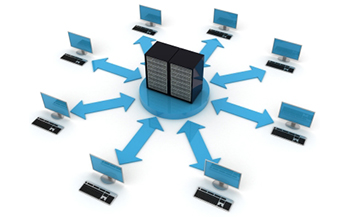Just Because You’re Not a Big Target, Doesn’t Mean You’re Safe

Just Because You’re Not a Big Target, Doesn’t Mean You’re Safe
Not too long ago, the New York Times’ website experienced a well-publicized attack, which raises the question – how can this happen to such a world-renowned corporation? If this can happen to the New York Times, what does this bode for the security of a small company’s website? What’s to stop someone from sending visitors of your site to an adult site or something equally offensive?
The short answer to that question is nothing. In the New York Times’ attack, the attackers changed the newspapers’ Domain Name System (DNS) records to send visitors to a Syrian website. The same type of thing can very well happen to your business website. For a clearer perspective, let’s get into the specifics of the attack and explain what DNS is.







